PRESS
Japan’s First Implementation of a Digital Product Passport (DPP) in Medical Apparel
― sukui Achieves Carbon-Negative Performance Through LCA,
Setting a New Global Standard for Sustainable Uniforms ―
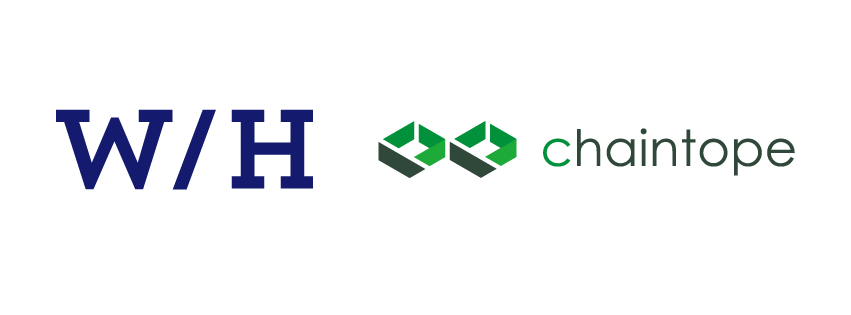
Chaintope Inc. (Head Office: Iizuka City, Fukuoka Prefecture; CEO: Hideki Shoda), in collaboration with Working Hasegawa Co., Ltd. (Head Office: Kaho District, Fukuoka Prefecture; Representative Director: Shinichi Hasegawa), has developed and implemented a proprietary Digital Product Passport (hereinafter “DPP”) system for its sustainable medical apparel brand sukui.
The DPP is a system designed to centrally manage and disclose environmental information throughout a product’s lifecycle—from production to disposal—and is slated for regulatory implementation in the EU from 2027 onward. While the requirements and specifications for DPP are still under discussion in Japan, sukui has taken the lead by developing a DPP framework that is compatible with future legislation.
This system utilizes blockchain technology to visualize CO₂ emissions and absorption based on Life Cycle Assessment (LCA), as well as to disclose supply chain-related environmental data such as the origin of raw materials, suppliers, and energy consumption. The interface supports Japanese, English, and Chinese, providing transparent and trustworthy information on a global scale.
This initiative marks the first implementation of a DPP in the medical apparel sector in Japan, setting a new standard for next-generation uniforms that contribute to a circular society.
1. Japan’s First DPP Implementation in the Medical Apparel Sector
Following the results of a demonstration project conducted since July 2024, sukui completed the implementation of a Digital Product Passport (DPP) across all of its products in July 2025.
All future sukui products will feature a DPP label with a QR code, allowing anyone to easily access environmental information specific to each item by scanning the code with a smartphone.
This is the first case in Japan where both a DPP-compatible operational infrastructure and product-level implementation have been carried out simultaneously in the medical apparel sector—well ahead of anticipated regulatory requirements.
This initiative represents a groundbreaking approach to visualizing sustainability in environments where transparency and trust are essential, such as medical settings.

2. Visualizing CO₂ Through LCA and Achieving Carbon-Negative Products
For each sukui product, CO₂ emissions are calculated based on a Life Cycle Assessment (LCA), covering the entire production process—from raw material procurement to spinning, weaving, sewing, and dyeing.
In addition, the hemp used as the main material, supplied by KINGDOM TEXTILE (SHANGHAI) LTD (hereinafter “KINGDOM”), absorbs a large amount of CO₂ during cultivation. As a result, the amount of CO₂ absorbed significantly exceeds the emissions, enabling each product to achieve a carbon-negative footprint.
▶ CO₂ Environmental Balance by Product (Unit: kg-CO₂)
| Product | Emissions | Absorption | Net CO₂ Balance |
| Top | 6.15 | 12.49 | −6.34 |
| Pants | 8.68 | 17.60 | −8.92 |
As a result, sukui products not only avoid harming the environment but actively contribute to environmental benefit—proposing a new standard for sustainable apparel.
Note: Absorption values are calculated based on KINGDOM’s verified hemp CO₂ absorption performance (13.7 tons per hectare) and the weight of each product.
Note: Emissions from transportation are not currently included but are planned to be incorporated in future assessments.
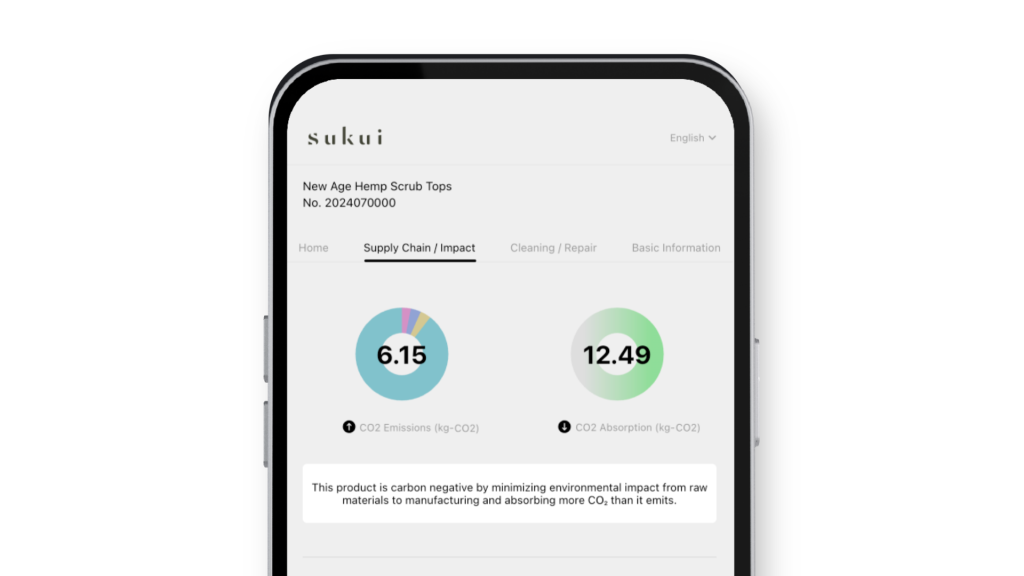
3. Internationally Aligned Hybrid DPP Architecture
sukui’s DPP system adopts a hybrid architecture in which highly trusted data—such as CO₂ emissions and material origins—is recorded on the blockchain platform “Tapyrus,” developed by Chaintope Inc., while other operational data is efficiently managed using a traditional database.
This structure is consistent with advanced European initiatives such as “CIRPASS” and the “Battery Passport,” both led by the EU, and is designed to flexibly accommodate future regulatory changes.
Note: CIRPASS is a European Commission–led project working toward the standardization and implementation of Digital Product Passports (DPPs).
The user interface supports Japanese, English, and Chinese, enabling smooth cross-border disclosure of supply chain data between Japan and China, while also aligning with the requirements of the European market.
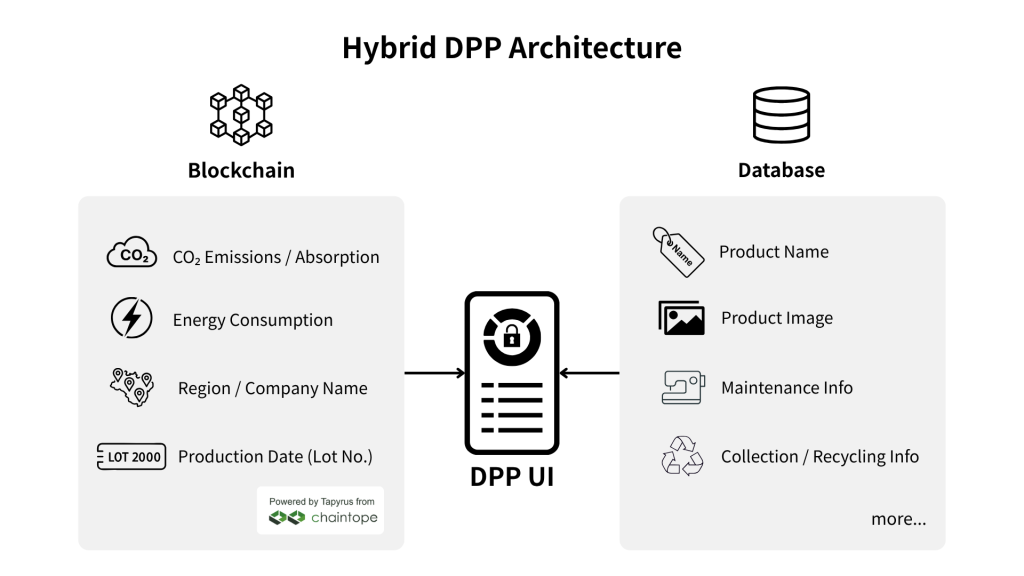
4. From Disposable to Circular — Designing for Sustainability from the Start
At sukui, we aim to create products that coexist with the environment by building circularity into the design process from the very beginning.
Our main material is high-performance hemp from KINGDOM, which absorbs 13.7 tons of CO₂ per hectare during cultivation—significantly reducing carbon in the atmosphere. In addition to this exceptional carbon absorption, hemp as a material requires no pesticides or large amounts of water, and contributes to healthier soil, making it one of the most environmentally sustainable natural fibers recognized globally.
sukui has also adopted a circular design model that avoids polyester threads, reduces resource consumption through garment dyeing, and anticipates post-sale support including repair, cleaning, collection, and composting.
By extending the product lifespan and closing the loop at end-of-life, we are realizing a system in which garments are not discarded as waste, but returned to the resource cycle.
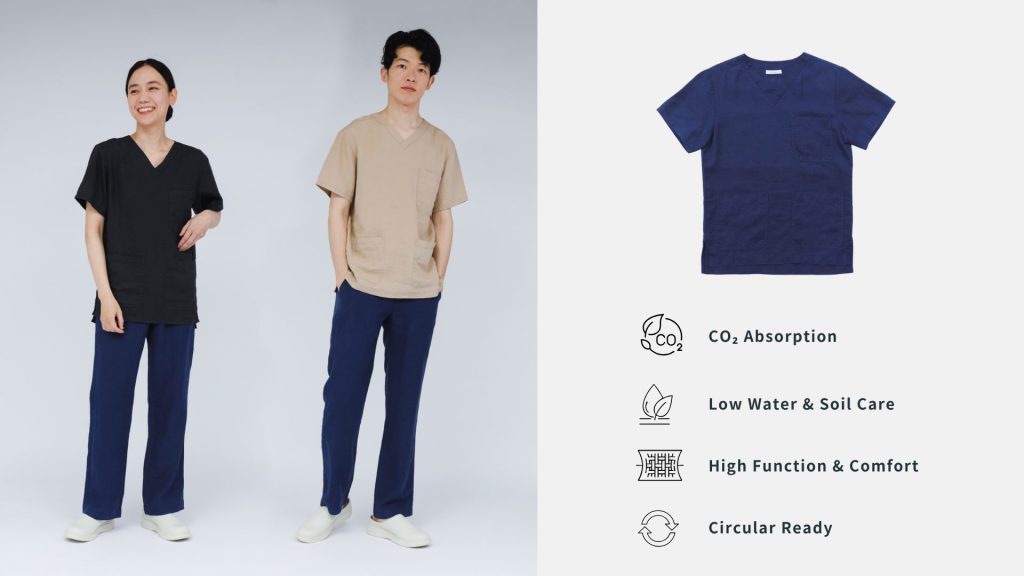
5. Balancing Global Regulatory Readiness with Brand Competitiveness
In the European Union, mandatory implementation of Digital Product Passports (DPPs) for textile products will begin in stages from 2027, with full disclosure of lifecycle-related environmental information expected by 2030. In Japan, momentum is also building, as the Ministry of Economy, Trade and Industry released its “Guidelines for Environmental Information Disclosure” in June 2024.
sukui’s DPP initiative is not only designed to align with such regulatory developments, but also serves as an innovative effort to strengthen brand trust and global competitiveness.
6. From the Regions, From Asia — Driving Sustainable Innovation on a Global Scale
This project was launched with support from Fukuoka Prefecture and the city of Iizuka. In 2021, Iizuka declared its commitment to blockchain advancement, initiating a multi-sector effort among industry, academia, and government to foster new industries through innovation.
The implementation of sukui’s DPP is a bold step toward building a globally aligned sustainable supply chain—originating not from major capitals, but from Japan’s local regions and Asia.
By combining local expertise with Asia’s agility and determination, we aim to contribute to solving global challenges.
This is just the first step in our journey to create the new standard for a sustainable future.
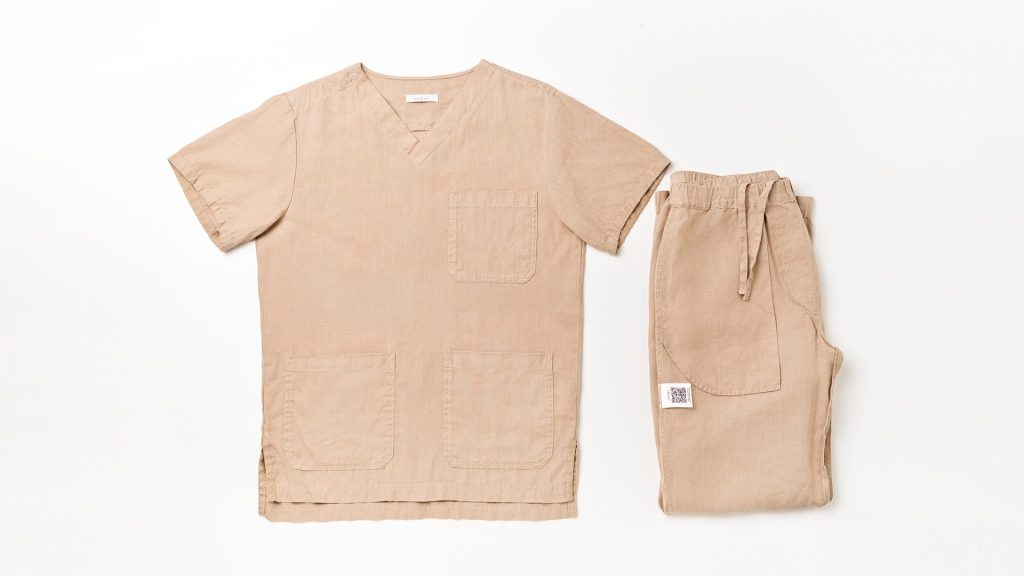
Inquiries regarding sukui
Working Hasegawa Co., Ltd.
Representative: Shinichi Hasegawa, CEO
Head Office Address: 156-1 Seto, Keisen Town, Kaho District, Fukuoka 820-0604, Japan
URL: https://sukui-wear.jp
Email: info@sukui-wear.jp
Inquiries regarding the DPP System
Chaintope Inc.
Representative: Hideki Shoda, CEO
Head Office Address: 576-14 B211, Koubukuro, Iizuka City, Fukuoka 820-0066, Japan
URL: https://www.chaintope.com
Email: info@chaintope.com
About Working Hasegawa Co., Ltd.
Founded in 1978 in Fukuoka, Japan, Working Hasegawa Co., Ltd. has continuously supported working people through the production and sale of workwear. With the growing importance of environmental consciousness in manufacturing globally and observing the EU’s advanced initiatives, we felt a strong need to shift towards environmentally-friendly garment production in Japan. To this end, we launched our sustainable medical wear brand, sukui, promoting the development of sustainable wear based on circular economy principles. We aim to establish standards for resource circulation and low environmental impact by collaborating with like-minded companies domestically and internationally, striving to bring about positive social change for future generations.
About Chaintope Inc.
In a world where all information is becoming digital, Chaintope Inc. stands as a global leader in blockchain technology, addressing the question, “Can we trust this data?” To meet this challenge, we developed the blockchain “Tapyrus” and have advanced its application to society, with a mission to instill trust in a data-driven world. By enhancing transparency, we aim to create a society where everyone can safely utilize data, driving transformation in both business and social structures. As the pioneering “first penguin,” we are forging paths with a spirit of enjoyment as we tackle uncharted terrain.
About KINGDOM
KINGDOM is a global leader in the linen and hemp spinning industry, committed to sustainable production and environmental protection. With over 40 years of experience, KINGDOM continues to lead the industry through innovative technology, high-quality products, and the achievement of carbon neutrality. Producing 25,000 tons of linen yarn and 4,000 tons of hemp annually, KINGDOM collaborates with farmers both domestically and internationally to promote sustainable cultivation. The company is dedicated to fulfilling social responsibilities while enhancing transparency and trust across the global supply chain.
Note: KINGDOM https://www.instagram.com/kingdom___official


